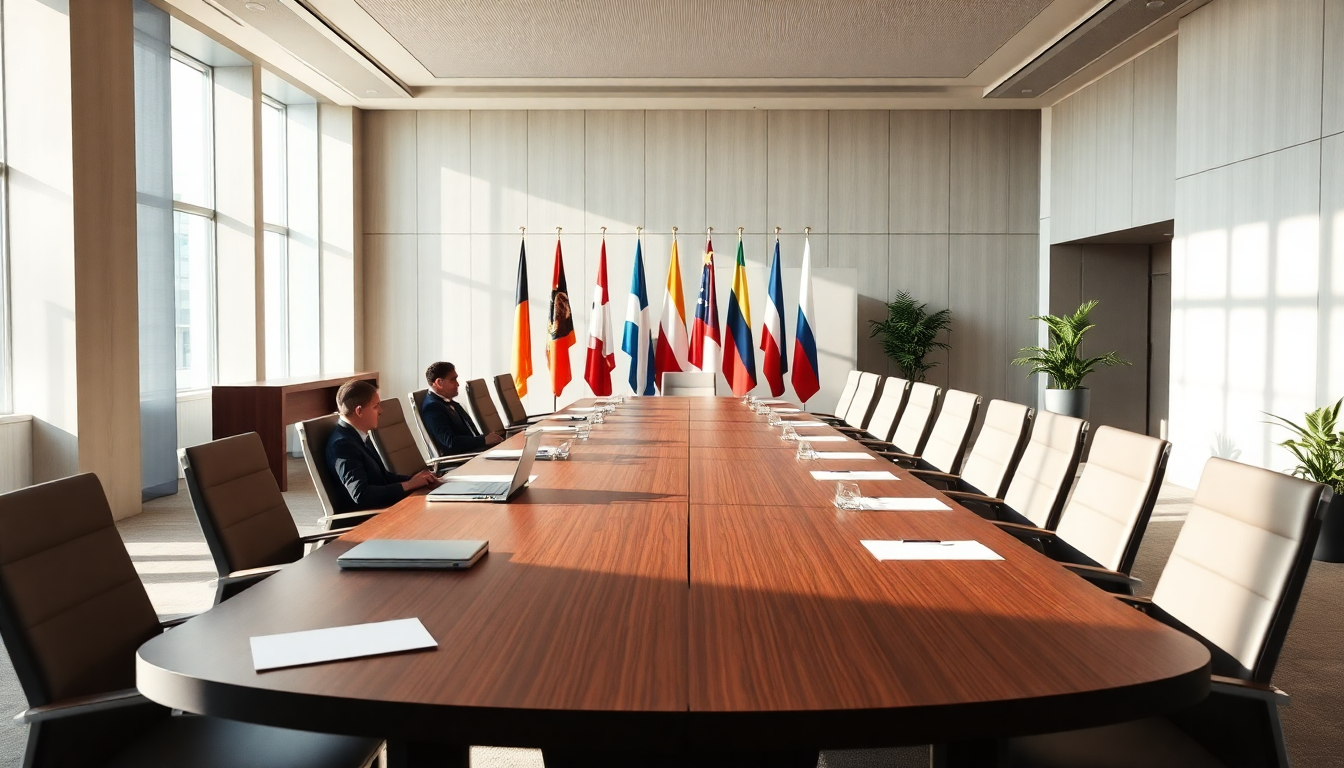Table of Contents
As global trade faces unprecedented challenges, the World Trade Organization (WTO) is at a pivotal moment in its history. Established in 1995, the WTO was created to lower trade barriers and promote sustainable development. But in today’s unpredictable climate, many are questioning its effectiveness as the champion of free trade.
A recent gathering of world leaders in Geneva underscored the urgent need for dialogue and cooperation, yet the looming threat of protectionist measures casts a long shadow, risking the very foundation upon which the WTO was built.
The Current Landscape of Global Trade
The WTO has been criticized for its struggles to address the diverse concerns of stakeholders—from labor unions in the West to developing countries that feel sidelined by a system favoring the wealthy. The rise of protectionism, notably during the previous U.S.
administration, has only complicated its mission. The tariffs implemented under Trump’s leadership marked a dramatic shift toward a protectionist approach not witnessed since the 1930s, disrupting supply chains and driving up costs for consumers and businesses alike. These developments raise pressing questions about the WTO’s role in facilitating trade and resolving disputes, as it grapples with an increasing number of conflicts stemming from unilateral trade actions.
Isn’t it time to rethink how we approach global trade?
The impact of these tariffs is significant. Research from Yale’s Budget Lab indicates that the effective U.S. tariff rate has soared to levels not seen in over a century, sending shockwaves through the global economy.
As countries adopt more aggressive trade policies, the WTO’s ability to uphold a rules-based system is increasingly challenged, leading many to wonder about the future of multilateral trade agreements. Will the WTO be able to steer us back on course?
Historical Context and Protests Against the WTO
The challenges facing the WTO are not new. Since its inception, the organization has been under fire for allegedly prioritizing corporate interests over the needs of workers and communities. The protests in Seattle in 1999 marked a pivotal moment, as thousands took to the streets to express their discontent with an institution perceived as complicit in undermining labor rights and environmental protections. This discontent has only intensified as the economic landscape has evolved and the benefits of globalization have been unevenly distributed. How can we ensure that everyone benefits from trade?
These protests underscored a growing belief that the WTO’s rules favor developed nations, often at the expense of emerging economies. Issues like intellectual property rights, highlighted by the TRIPS agreement, have faced criticism for hindering the growth of industries in developing countries while disproportionately benefiting established corporations. A striking example is South Africa during the HIV/AIDS crisis, where pharmaceutical companies battled against efforts to provide affordable medicines. This serves as a sobering reminder of the real-world consequences of the WTO’s policies.
Future Prospects for the WTO
Looking ahead, a crucial question lingers: can the WTO adapt to this ever-changing global landscape? The call for reform is louder than ever, with many advocating for a shift toward more equitable trade rules that consider the interests of all member states. The ongoing North-South disparities leave the organization vulnerable and uncertain about its role in mediating trade disputes. What changes can we expect to see?
In this context, the WTO’s ability to serve as a neutral forum for resolving conflicts is essential. However, with the U.S. taking a more unilateral approach to trade policy and undermining the organization’s dispute resolution mechanisms, the future of effective governance seems bleak. Analysts warn that without substantial reforms, the WTO may continue to struggle to fulfill its original mission, leaving the global trade system open to fragmentation and instability. Are we witnessing the beginning of the end for multilateralism?
In conclusion, while there are glimmers of optimism regarding the WTO’s future—especially with leaders like Director-General Ngozi Okonjo-Iweala expressing hope for a revitalized role in global trade—the road ahead is fraught with challenges. The organization must confront the realities of a multipolar world where power dynamics are shifting, and trade relationships are increasingly driven by bilateral agreements rather than multilateral cooperation. Only time will tell if the WTO can reclaim its status as a guardian of free trade or if it will fade into obscurity in an era marked by protectionism.





